Everlyn Gaupe says she could have outrun their attackers but her little sister could not. She stayed behind. Both girls were beaten and gang raped.
Their assailants were security guards hired to patrol a gold mine in her community of Porgera in Papua New Guinea. Gaupe was 18 years old.
But time has not healed, and though the vicious attack was nearly 20 years ago, the experience brings her to tears today. Gaupe flew from Papua New Guinea to share the difficult memory with Barrick Gold — the Canadian mining giant that owns nearly 50 per cent of the Porgera gold mine.
She and another survivor of the violence at the mine, Joycelyn Mandi, attended the company's annual general meeting with shareholders on Wednesday to demand justice for more than 100 other women who have experienced similar trauma at the hands of Porgera's security guards. But they were denied the opportunity to speak by a member of Barrick Gold's staff, as a protest against its operations was underway on the streets of downtown Toronto.
In an interview with National Observer, Barrick Gold's senior vice-president of communications, Andy Lloyd, said it appears there was a problem with their arrangement to speak at the meeting through a proxy shareholder — a practice regularly used by activists to participate in such meetings, and permitted by the company.
Barrick Gold regrets the "misunderstanding," he said, and despite the protocol mishap, Lloyd said the women should still have been able to ask questions at the meeting. Barrick has offered to meet with Gaupe and Mandi privately to hear their concerns while they're still in Canada.
Catherine Coumans of MiningWatch Canada accompanied Gaupe and Mandi at the shareholder's meeting and read their statements for them as they watched quietly, unable to speak. She equated the rejection of their proxy request — which she says was completed on time — to taking "away their voice."
"We've been doing this year after year, using this forum to allow people to have a voice in Canada and talk to the shareholders and directors directly," she told National Observer. "This year, they rejected almost all the proxies, and there was no reason given. The first thing that came to my mind is, 'silence is violence'... This is how you silence people."
A history of violence at Porgera mine
Gaupe and Mandi, who left Papua New Guinea for the first time in their lives just to make this presentation, were devastated.
"It's not only us," said Mandi, standing at the heart of a small protest outside the meeting. "We are representing the majority back home. It's not about us."
The Porgera gold mine in western Papua New Guinea has been the notorious site of gang rape, beatings, and other atrocities since it started operating in 1990. Detailed reports by Human Rights Watch and other industry watchdog groups describe disturbing cases of extreme violence at the hands of mine security personnel, some of whom threatened victims with arrest if they tried to complain to other authorities.
Most of the victims are villagers who scavenge for low-grade ore discarded in the company's waste rock piles, said Coumans of MiningWatch Canada, or women and girls who are crossing mine property to get to school, their jobs, or the market.
"This mine dumps all of its tailings and waste rock directly into the river valleys all around the pit," she told Barrick's shareholders, reading the presentation Gaupe intended to make. "Our villages are surrounded by mine waste. We have to cross this waste just to get from one village to another, or to go to our vegetable gardens or schools."
The mine is a joint venture of Barrick Gold, a Chinese producer called Zijin Mining Group, and Mineral Resources Enga, which divides its five-per-cent interest between the local provincial government and landowners. Barrick, the largest gold producer in the world, acquired its interest in the mine in 2006, which means much of the documented violence occurred before it became involved in the project.
Reports from the ground however, indicate that the company's efforts to contain violence at the hands of mine security guards since 2006 have failed: Beatings, rapes and attacks are still common, reports MiningWatch Canada. In March, a local human rights organization — the Akali Tange Association — also said a police raid on a village within the mine's lease destroyed 150 houses, and that villagers were beaten and gang raped.
In a letter to the Akali Tange Association, Barrick Gold acknowledged encouraged that the raid took place, but said no mine personnel were involved, nor were they aware the raid would take place. The company disputed the organization's numbers, encouraged it to present evidence to support a full investigation into the incident, and said the mine's operators would consider all requests for humanitarian assistance arising from the police operation.
"It’s an extremely complex environment, one of the most challenging environments to operate a mine in the world," said Lloyd of ongoing violence at the mine. “The mine and its owners will not be able to solve these challenges on its own. We need the government to be at the table, we need community leaders to be at the table."
Gender-based violence is an issue across Papua New Guinea, he added, not just at the mine site. To help with the problem, the company has brought in a global human rights training program for all of its employees that includes a focus on gender-based violence.
"Nobody, as far as I’m aware is calling for the mine to be closed, so the challenge is, how do we actually address some of these persistent issues that have been there for 20 years? They're not new and they're not easy to solve."
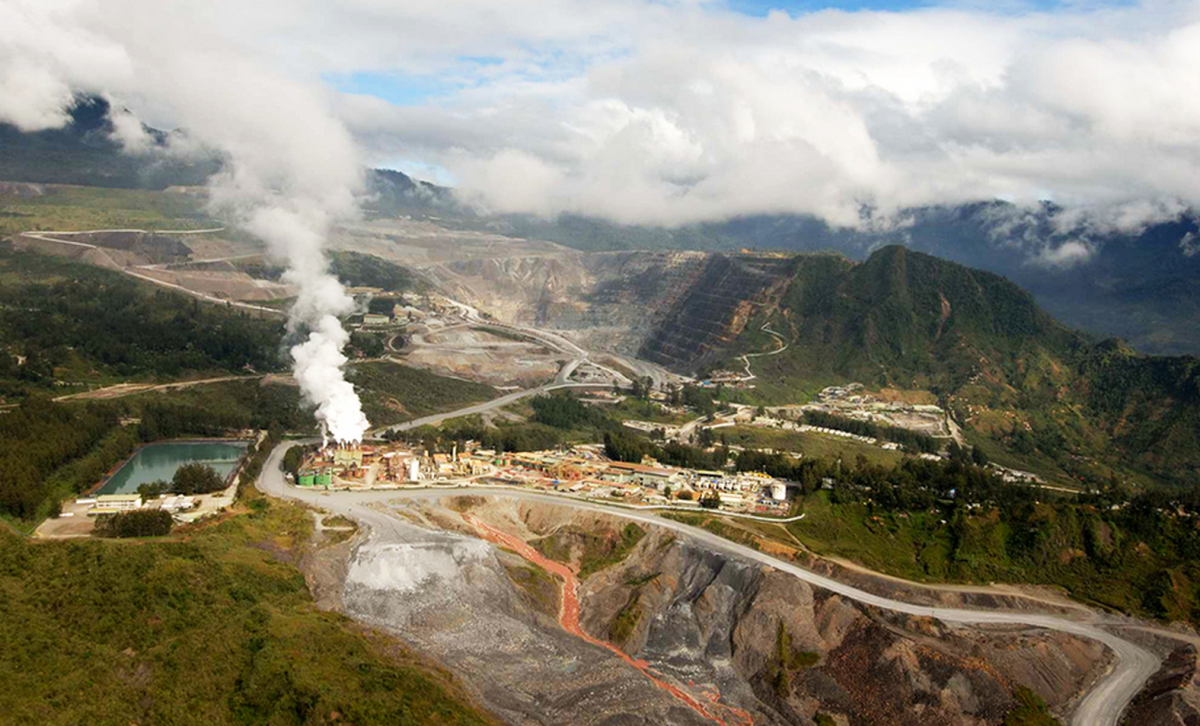
Dispute over compensation for survivors
According to Gaupe and Mandi, there's a simple solution to Barrick's conundrum.
"Maybe they should return to Canada and stay in Canada," said Mandi in an interview. "I think it is best to stop this big Canadian gold miner, Barrick, from mining in our home country."
Mandi, who was a school girl when she was raped by a group of Porgera mine security guards, is one of an untold number of women who have never received compensation from Barrick for their suffering. Ashamed of what had happened to her, she fled her village after the attack, she told National Observer.
She never heard that in 2012, the company launched a formal remediation program for female victims of sexual violence in the Porgera Valley. The first of its kind, it offered the women PGK50,000 (roughly $21,000) in compensation, and a promise that school fees and medical support would be provided for their children over the next three years.
But much of the latter has not been delivered, says Gaupe — one of 119 who did hear about the package and accepted it. When her husband found out that she had been raped, he abandoned her, leaving her alone to raise their children. She is now struggling to keep them healthy and in school, she says, as a single mother of four.
The remediation program has been widely criticized by industry watchdogs, who say many of the women didn't understand the documents they were signing, and were led to believe that if they didn't sign, they would get nothing. In accepting the package, the women also signed a controversial legal waiver that forfeited their rights to sue the company or seek further compensation for the same grievance.
In 2015, 11 survivors of sexual assault at the mine settled out of court with Barrick, for what was reportedly a much larger sum than was provided through the remediation package. In November last year, Gaupe — along with the other women who took that package — signed a letter seeking intervention from the officials at the UN Forum on Business and Human Rights in Geneva in their quest to receive compensation to match the sum received by the women who settled out of court.
Those sums have been kept confidential and National Observer could not confirm the numbers.
No plans to re-open remediation program
On Wednesday, at the shareholder's meeting, Coumans of MiningWatch Canada demanded on their behalf that Barrick release them from the legal waiver preventing them from suing or seeking extra cash.
"Then at least the women can consider whether they have legal options," she said. "I don’t think it’s good enough for Barrick to say, ‘This is a difficult environment.' They are mining there, so they have a responsibility."
Lloyd said the company has given the women who accepted its remediation package a cash "top up" since 2012, but has no plans to reopen the program. He acknowledged that Barrick's own consultants identified problems with the program and how it was carried out, and that the violence experienced by the women is "completely unacceptable."
Broadly speaking however, he said the Porgera mine is a "very positive contributor to the community." It employs more than 2,000 people, and since Barrick Gold acquired its interest in 2006, the company has made substantial contributions to the Porgera District Women's Association and the family and sexual violence unit of the local police, and has provided funds for new women's welfare liaison officers, which provide an alternative avenue for women to report cases of abuse.
The efforts are of little comfort to Gaupe and Mandi. Mandi, who filed her complaint about her assault to the grievance office in Porgera and received a case number, hasn't heard from a mining official in a year.
“I should tell Canadians that Barrick is a bad company and it should stop mining," she said.
“No matter how long it takes, I will still keep on fighting until justice has been made," added Gaupe.
Incidents plague Barrick mines around the world
Barrick Gold reported weaker-than-expected quarterly earnings on Monday, the day before the shareholder's meeting. It also slashed its forecast for output and raised costs at its gold mine in Argentina, where a local judge is contemplating an order to shut it down.
The company had its third cyanide solution spill in 18 months at the Veladero mine in San Juan last month.
Responding to that incident, Lloyd said the company is confident it can operate the mine safely in the future and that the incident is "very disappointing." The company has committed to "completely overhauling" its operations there, he added, to ensure "world class" oversight.
The Toronto-based company has previously been hit with a record US$16.4-million penalty in Chile, where it was found guilty of 23 violations of its environmental impact agreement at the Pascua Lama gold project on the Chile-Argentine border. The convictions included building earthworks without approval, failing to prevent runoff from mineral acid, and failing to tell the whole truth when it came to such operational failures.
The North Mara mine in Tanzania, 64 per cent owned by Barrick, has also suffered from steady violence by security guards, similar to the Porgera mine. Last year, a Tanzanian government inquiry found that at least 65 people have been killed and 270 have been injured at that operation since 2006.
— with files from Riley Sparks

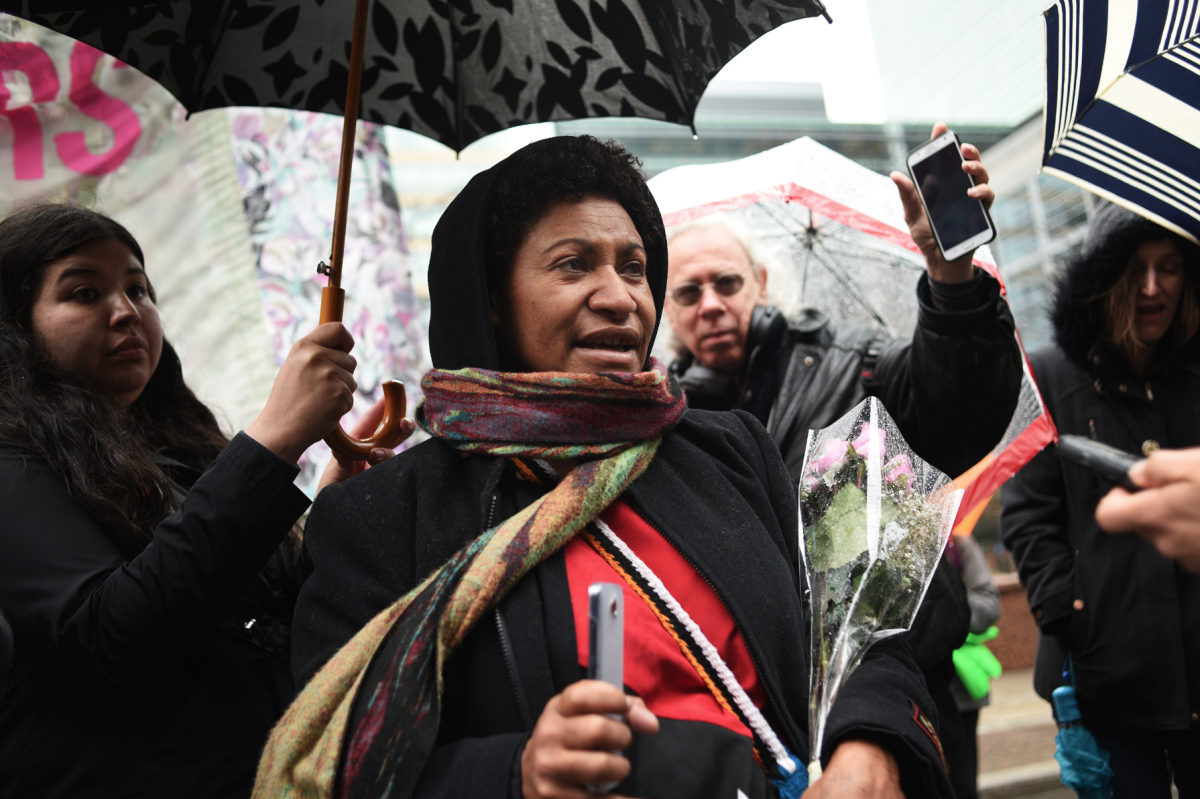

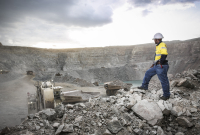
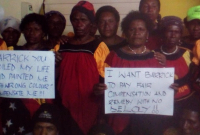
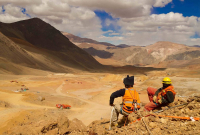
Comments
Barrick's line about how they could have spoken is BS. They had security guards following them during the meeting, policing where they could sit (making sure it was away from the mics). They had a separate person than the registration person tell them that they couldn't use the proxies, and it was protested at the time with proof that they had legal proxies (with proxies in hand). There was a concerted effort at play to disallow them to speak, and we are looking into legal action. If Barrick would have allowed them to speak, they should have said that when Catherine was chiding them for not allowing them to. They were right there, standing next to the mic, with barricks security next to them enforcing their silence, just like in porgera.
Very sad to hear this..Another violence committed at the AGM by Barrick's Senior Executives themselves.
Wow, this post is pleasant, my sister is analyzing these things,
so I am going to convey her.
cheap football jerseys
It's nearly impossible to find knowledgeable people in this particular topic, but you sound like you know what you're talking about!
Thanksauthentic jerseys
This is my first time pay a quick visit at here and i am actually pleassant to read everthing at one place.discount baseball jerseys
Se a citação tem menos de três linhas, então ela é
feita no corpo do artigo, contando com aspas duplas. http://cgi.members.interq.or.jp/silver/ginkuji/skin/001/apeboard.cgi?co…
Very sad to hear this..Another violence committed at the AGM by Barrick's Senior Executives themselves.
Lindsey Graham doesn't deny Brett Kavanaugh could spur Roe v. Wade reversal Wisconsin mother is lone survivor after kayak capsizes on Lake Superior, killing husband and three children claire Danes And Hugh Dancy Welcome Baby Boy To Family Does Devil May Cry Still Hold Up? Ben Affleck's rumored flame Shauna Sexton responds to accusations that she got him 'thrown into rehab' вЂVanderpump Rules’ star Lala Kent is engaged to Randall Emmett: See her ring! Donald Trump Gets Brutally Mocked Over 'Biggest Stadium' Pledge For Ted Cruz
Trump visits golf course while Washington mourns McCain Bishop apologizes to Ariana Grande for вЂtoo friendly’ grope during Aretha Franklin funeral
people Can't Get Over Pete Davidson Attending Aretha Franklin's Funeral
wisconsin mother is lone survivor after kayak capsizes on Lake Superior, killing husband and three children
the 30 highest-paid tennis players of all time, ranked
mollie Tibbetts' father: Stop using her murder for immigration agenda
serena Williams Hails Colin Kaepernick's Dedication To 'Greater Good'
Missouri attorney general sues over deadly duck boat sinking Michigan College Students Sue Over Laws They Say Make It Harder For Them To Vote New Anthem Trailer Explores Story, Combat, And World
Please Enjoy These Photos Of A Young Prince Harry At Eton Microwave Weapons Could Be The Culprit Behind The Mysterious U.S. Embassy Attacks
As Florida's toxic red tide stretches on, residents report health problems People Are Angry Over Fox News Job-Shaming Former 'Cosby' Actor For 'Bagging Groceries'
People Are 'Revealing' Celebrities Real Names On Twitter, And It's Too Much GOP Senate Candidates Are Scrambling To Rewrite Their Record On Pre-Existing Conditions
Missouri attorney general sues over deadly duck boat sinking Italian filmmaker walks Venice red carpet in shirt declaring 'Harvey Weinstein is innocent' Meghan McCain Takes Aim At Trump In Powerful Eulogy For Her Dad John McCain
marco Rubio Slams U.S. Flag Omission In вЂFirst Man,’ And Twitter Users Pounce
the Stanford Band May Have Tricked Trump's Campaign Manager Into Mocking Him
5-Pound Dog Dies Protecting Human Family From Bear
13 hurt and 2 missing after boats collide on Colorado River
halle Berry Cheekily Calls Out Prince Harry For Having Her Picture On His Dorm Wall
'Good Morning America' cohost Lara Spencer marries Rick McVey 5-Pound Dog Dies Protecting Human Family From Bear Jennifer Lawrence's Nude Photo Hacker Sentenced To 8 Months In Prison Wisconsin mother is lone survivor after kayak capsizes on Lake Superior, killing husband and three children Italian filmmaker walks Venice red carpet in shirt declaring 'Harvey Weinstein is innocent'
Former 'ER' Actress Killed By Police After She Took Out BB Gun Serena survives scare from Kanepi to reach U.S. Open quarters
Folks Are Angry Over Fox News Job-Shaming Ex-'Cosby' Actor For 'Bagging Groceries'
Rap In The Middle Of Pop Songs Is This Generation's Rock Guitar Solos There's Extra And Then There's Lady Gaga Arriving At The Venice Film Festival Emmy Rossum Exits 'Shameless' After 9 Seasons: 'It Really Feels Like A Family' Nearly 500 Children Separated At Border From Parents Are Still In Government Shelters Trump: Tiger Woods вЂshowed great class’ in answering question about me
Halle Berry Cheekily Calls Out Prince Harry For Having Her Picture On His Dorm Wall
http://shieldaegis.com/31532-trump-visits-golf-course-while-washington-…
http://shieldaegis.com/47934-does-devil-may-cry-still-hold-up.html
http://shieldaegis.com/49711-kelly-ripa-recalls-family-trip-in-throwbac…
http://shieldaegis.com/53073-bishop-apologizes-to-ariana-grande-for-too…
http://shieldaegis.com/20458-meghan-mccain-takes-aim-at-trump-in.html
trump: Tiger Woods вЂshowed great class’ in answering question about me
people Are 'Revealing' Celebrities Real Names On Twitter, And It's Too Much
the Stanford Band May Have Tricked Trump's Campaign Manager Into Mocking Him
everybody is buying these AirPods rivals
missouri attorney general sues over deadly duck boat sinking
jennifer Garner Gets Back Into Action On 'Peppermint' Red Carpet
does Devil May Cry Still Hold Up?
mcCain's body arrives in Annapolis for burial after week of eulogies
watch The Sweet Video Gabrielle Union Made Husband Dwyane Wade For Their 4th Anniversary
maxine Waters Gives 'Wakanda Forever' Salute At Aretha's Funeral
red bull y viagra, is viagra illegal in egypt syphilis
http://viagrawithadoctorprescription.org/ - viagra without a doctor prescription
viagra without a doctor prescription
http://viagrawithadoctorprescription.org/ cialis viagra without a doctor's prescription
number one medical school in the world health insurance for children
viagra alternative uk treatment for heat exhaustion hospital clinic near me
http://levitracoupon.us.com/ - cheap levitra
heat stroke treatment first aid
levitra
heat stroke in adults common signs of stds
get viagra prescription online swiss apotheke viagra generika medical education journal
http://vigrawithoutdoctor.com/ - viagra without a doctor prescription
osteopathic medical school rankings
100mg viagra without a doctor prescription
viagra samples symptoms and treatment of heat exhaustion